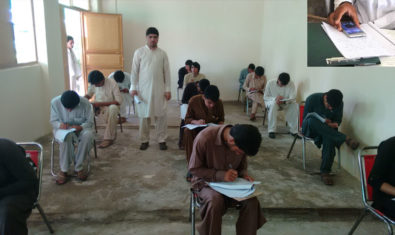The World Bank has rated the overall implementation progress of the “Sindh Solar Energy Project” worth $100 million as “moderately unsatisfactory” to reflect the continued implementation delays and the corresponding slow rate of disbursement under the project.
Official documents reveal that the World Bank has disbursed $16.15 million for the project which was approved by the World Bank’s Board of Executive Directors on 14th June 2018 and became effective on 9th January 2019 with the development objective to increase solar power generation and access to electricity in Sindh province.
The first disbursement (into the designated account) was made in September 2019, but due to significant delays in implementation (due to the COVID-19 pandemic and related restrictions) the project is significantly behind its implementation schedule with tangible results under just one of the four components.
The documents further revealed that there is limited progress to report under Component 1, but the planning is now underway to develop the site in Jamshoro district which was approved under the Indicative Generation Capacity Expansion Plan (IGCEP) 2021-2030 for 50 MW of utility-scale solar.
A Memorandum of Understanding (MoU) was signed in December 2021 between Sindh Energy Department (SED), K-Electric (KE), and the World Bank (WB) to develop the remaining 350 MW of solar capacity targeted under the project. It is expected that a competitive bidding process for one or more sites can commence before the end of 2022.
However, it is now clear that implementation of Component 1 will not require utilization of all the funding allocated to this component and so discussions are ongoing on the reallocation of these funds to other components.
The World Bank team noted the further progress made by SED in the commissioning of 21 sites (of 9.8 MW) under Component 2 for the installation of solar power on the rooftops of public hospitals under the special COVID-19 response measures implemented since April 2020, with the remaining 11 sites due to be fully commissioned in the next two months, while the capacity procured for three cancelled sites is expected to be deployed at suitable alternative sites.
The second round of procurement has been launched for at least 10 MW of rooftop solar capacity under the existing project design, and there is strong interest from SED in adding further rounds of procurement.
Under Component 3, sales and installations of solar home systems (SHS) have commenced, with over 500 SHS sold by two different approved suppliers. Unfortunately, progress under this component has stagnated in recent months and is now further threatened by the flooding experienced in Sindh over the summer of 2022.
This will reduce the ability of households to afford their portion of the cost of new SHS and has also introduced additional logistical challenges for the SHS suppliers. SED is currently exploring ways in which some of these issues can be addressed under the project so that implementation progress can be accelerated. There has been limited implementation under Component 4, although training of 300 solar technicians has recently commenced.
It is likely that the majority of funds under this component can be reallocated. The rating for overall implementation progress has been maintained at “moderately unsatisfactory” to reflect the continued implementation delays and the corresponding slow rate of disbursement under the project.
The rating for progress towards the achievement of the project development objective is maintained at “moderately satisfactory,” reflecting the reasonable likelihood that most or all of the project’s desired results can be achieved, with some shortfalls, if the implementation is accelerated.
The project also has the potential to significantly exceed the targeted results under Component 2 through the reallocation of funding from other components. The WB has provided guidance and agreed on a series of actions that can get the project back on track and help it contribute to the urgent need to increase solar power capacity within the country to offset imported fuel, reduce the overall cost of generation, and provide reliable electricity to households in the province of Sindh.






















